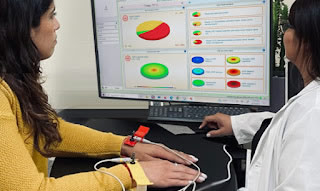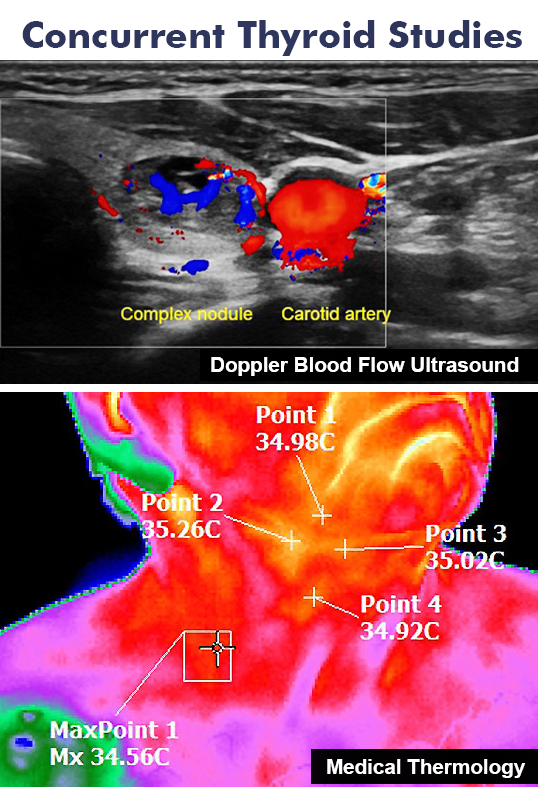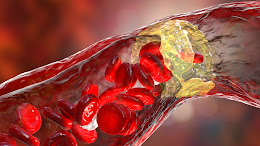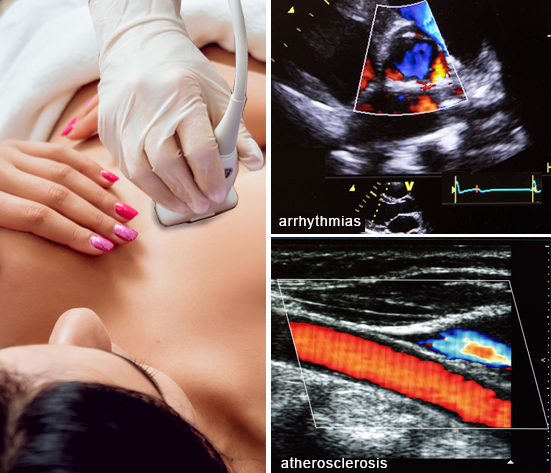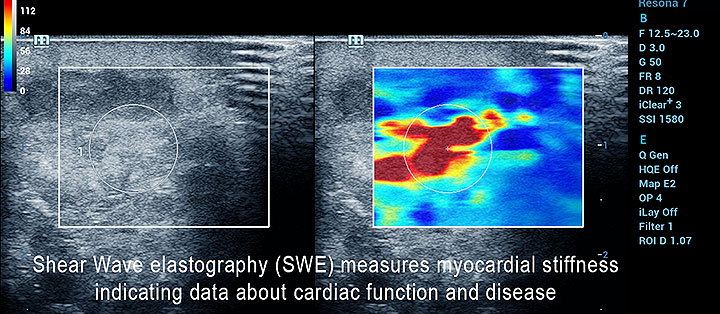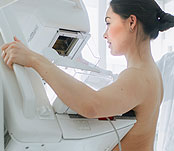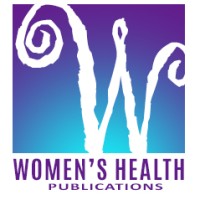 The Women's Professional Health Network is proud to publish a dedicated newsletter cataloguing the latest contributions by health professionals on the topic of Menopause. This publication covers a wide variety of feature topics covering this highly complex transitional health situation. Learn about the lifestyle changes, gain firsthand perspective on the many solutions that helped empower so many women- and the resources that offer these great insights. We welcome you to click through these latest feature articles and stories. You'll also enjoy some of the latest video interviews from our contributing professionals and advocates. The Women's Professional Health Network is proud to publish a dedicated newsletter cataloguing the latest contributions by health professionals on the topic of Menopause. This publication covers a wide variety of feature topics covering this highly complex transitional health situation. Learn about the lifestyle changes, gain firsthand perspective on the many solutions that helped empower so many women- and the resources that offer these great insights. We welcome you to click through these latest feature articles and stories. You'll also enjoy some of the latest video interviews from our contributing professionals and advocates.
|
| |
| Exclusive Report: GameChangers in Midlife Care |
|
• PIONEERING THE ART OF THE MIDLIFE CONSULT with a Functional Medicine Approach
- "Learning About MY Menopausal Symptoms Through Functional Health"- By Gina Adams
- A Patient’s Guide to Understanding Midlife Symptoms and Personalized Care Options
- Reviewing VIRTUALIZATION
• Launching MENOSCAN: Decoding Heart Disease
The menopausal transition is marked by significant hormonal shifts, particularly a decline in estrogen, which reduces its cardioprotective effects and heightens the risk of cardiovascular complications. Notably, women who undergo natural menopause at a later age tend to have a lower risk of cardiovascular disease and mortality. Given these factors, it is essential for women experiencing menopause to actively monitor their heart health and adopt preventive strategies. |
|
|
• THERMOLOGY AND THE THYROID GLAND
Situated anteriorly in the lower neck just below the Adam's apple lies a small butterfly-shaped gland that produces hormones that regulate the body's metabolism, energy production, body temperature, heart rate, and other bodily functions. This makes it an ideal candidate for assessment through high-resolution infrared thermographic imaging. Thermology offers a non-invasive, radiation-free adjunctive modality that complements traditional diagnostic methods in evaluating thyroid function and pathology.
• FEMTECH REPORT 1: Tech Innovations for Perimenopausal Health and Cardiovascular Risk in Women. Cardiovascular disease (CVD) is the leading cause of death among women, next only to breast cancer in terms of public health awareness and research focus. Despite the increased visibility of breast cancer campaigns, heart disease remains under-recognized in the female population, particularly during the perimenopausal transition. |
| |
| Podcast Episodes (Hot Selects) |
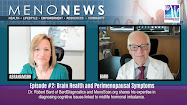 |
• MenoTalks* PODCAST EPISODE 2: BRAIN HEALTH in MENOPAUSAL SYMPTOMS
4-22/2025- Brain fog, memory glitches, and cognitive slowdown — for many women, menopause marks a turning point in brain health. Now, cutting-edge imaging is offering a clearer view into the brain’s wellbeing and early warning signs of disease. Your host Marilyn Abrahamson (brain health coach) spotlights MenoScan and the expertise of Dr. Robert Bard, a world-renowned pioneer in advanced ultrasound imaging. |
 |
• MenoTalks* PODCAST EPISODE 1: "MEET SABINE GEE:EMPOWERMENT COACH
4/18-2025- Ms. Gee captured the attention of our clinical directors for her work as a patient advocate, a researcher and for her dedicated outreach initiative to perimenopausal women and current sufferers. "Sabine has the voice of compassion, deep insight and true commitment to finding answers for us, including her experience based discoveries that truly help guide us all during this challenging and transformative process!" |
 |
• MenoTalks* pilot: THYROID HEALTH & KEY INSIGHTS ON HORMONES, LONGEVITY, AND WELLNESS
3/21/2025- From an exclusive interview with thyroid health expert Dr. Angela Mazza (Integrative Endocrinologist), we produced a spotlight on the key insights on Hormones, Longevity, and Wellness. "Thyroid health plays a critical role in nearly every physiological process of the body, influencing metabolism, brain function, heart health, and more." |
 |
• THYROID TALK with Dr. Angela Mazza: Special Guest- Dr. Robert Bard (a discussion on thyroid imaging and the future of diagnostic modalities)
• THYROID HEALTH: WHY ULTRASOUND MATTERS - By: Leslie Valle-Montoya
• Restoring THYROID BALANCE Through Nature’s Medicine By: Emanuela Visone
• Advanced THERMOLOGY 0 Scanning ther Thyroid and Cervical Diagnostics |
| |
|
| Health & Science Features |
 |
• HEART RATE VARIABILITY (HRV) AND CARDIOVASCULAR RISK IN PERIMENOPAUSE
By: Dr. Lesie Valle-Montoya
• The Many Faces of HEART DISEASE and CARDIOVASCULAR DISEASE
• MENOPAUSE LINKS TO CARDIOVASCULAR DISEASE (CVD) IN WOMEN / Imaging Solutions
By: Dr. Robert Bard
• CIMT & LONGEVITY by: Dr. Robert L. Bard |
 |
• SEXUAL and PSYCHOLOGICAL ISSUES with MENOPAUSE - By Barbara Bartlik, MD
• AN OBGYN'S REVIEW ON MENOPAUSE & SEXUAL HEALTH - By: Roberta Kline, MD |
 |
• DERM & HAIR NEWS: Inflammation, DHT, and the Biochemical Cascade of Hair Loss bY: jORDAN PLEWS, PH.D
• FACING HAIR LOSS LATE IN LIFE: A REVELATION -
By: Gina Adams (w/ Video by Dr. Roberta Kline)
• Regenerative Therapies and PHOTOBIOMODULATION (Red Light) for Hair Growth |
| |
• EARLY MENOPAUSE & A JOURNEY THROUGH PREMATURE OVARIAN FAILURE
by: Emanuela Visone |
 |
• MANAGING MENOPAUSE-RELATED BRAIN FOG By: Marilyn Abrahamson |
| |
• MENOPAUSE TODAY: FINAL METAMORPHOSIS OR PSEUDO-DISEASE
By: Dr. Roberta Kline • FUNCTIONAL HEALTH FOR MENOPAUSAL SYMPTOMS - By:Gina Adams |
| |
• CAN HOT FLASHES BE MY TEACHER? My Journey to Menopause Advocacy
By: Dominique Debroux |
| |
|
|
| |
|
|
| |
If you are interested in submitting an educational feature in Meno-News, please contact our newsdesk at: editor.prevention101@gmail.com or call: 516-522-0777 |
| |
|
|
|
|
1. CARDIOVASCULAR DISEASE (CVD): One of the most concerning risks associated with menopause is heart disease. Estrogen plays a protective role in maintaining healthy blood vessels and cholesterol levels. Its decline leads to increased LDL (bad cholesterol), reduced HDL (good cholesterol), higher blood pressure, and arterial stiffness, all of which contribute to cardiovascular disease.
The risk of heart disease increases substantially for women during and after menopause. Although exact prevalence rates vary, research indicates that nearly 45% of women aged 20 and older are affected by some form of cardiovascular disease. The menopausal transition is marked by significant hormonal shifts, particularly a decline in estrogen, which reduces its cardioprotective effects and heightens the risk of cardiovascular complications. Notably, women who undergo natural menopause at a later age tend to have a lower risk of cardiovascular disease and mortality. Given these factors, it is essential for women experiencing menopause to actively monitor their heart health and adopt preventive strategies. |
|
IMAGING HEART HEALTH
Ultrasound plays a vital role in assessing heart health in premenopausal women by providing a non-invasive, real-time evaluation of cardiac function. Echocardiography offers detailed imaging of the heart’s chambers, valves, and function, aiding in early detection of cardiovascular disease. As estrogen declines during menopause, risks like hypertension, arrhythmias, and reduced arterial elasticity increase. Early ultrasound detection helps guide lifestyle changes and medical interventions to prevent complications.
Carotid ultrasound is also crucial for detecting early atherosclerosis, a key driver of heart disease. By evaluating plaque buildup and arterial thickness, it identifies cardiovascular risks before major events occur. Since heart disease risk rises postmenopause, early vascular screening allows for timely preventive strategies.
Spasticity: Ultrasound elastography (USE), particularly shear wave elastography (SWE), shows promise as a non-invasive tool for assessing spasticity and monitoring treatment efficacy. While further research is needed to establish its reliability and validity, elastography is a well-established ultrasound imaging technique that measures tissue stiffness or elasticity. It has been widely used for liver fibrosis assessment and is now being explored off-label for other organs. In the context of spasticity, SWE can quantify muscle stiffness, potentially offering a more objective measure than traditional clinical assessments.
Incorporating ultrasound into routine assessments enables early intervention, guiding lifestyle and medical management to reduce heart disease risks. Given that cardiovascular disease is the leading cause of death in women, proactive imaging supports a healthier transition into menopause. Incorporating ultrasound into routine assessments enables early intervention, guiding lifestyle and medical management to reduce heart disease risks. Given that cardiovascular disease is the leading cause of death in women, proactive imaging supports a healthier transition into menopause.
Recommended Checkups:
• Lipid Panel: Monitors cholesterol and triglyceride levels.
• Blood Pressure Monitoring: High blood pressure is a silent risk factor for heart disease.
• Blood Glucose and Hemoglobin A1c: Helps detect diabetes or prediabetes, which increases heart risk.
• Electrocardiogram (ECG) or Stress Test: Assesses heart rhythm and function, especially for those with symptoms or risk factors. |
| |
2. BREAST AND REPRODUCTIVE HEALTH
The risk of breast cancer and other gynecological conditions increases with age, making routine screenings crucial. Advanced sonogram technology provides accurate use of sound waves to produce real-time images of the inside of the body. It is used as a complement to find anomalies and help diagnose the causes of pain, swelling and infection in the body’s internal organs while allowing the diagnostician the ability to zoom and ‘travel’ deep into the body for maximum exploration. Digital Imaging technology is also used to help guide biopsies and in many cases, even replicate much of the same reports of a clinical invasive biopsy. Imaging solutions such as high-powered Sonograms, Spectral Doppler, sonofluoroscopy, 3D/4D Image Reconstruction and the Spectral Doppler are safe, noninvasive, and does not use ionizing radiation. They also have the ability to provide early detection scans. (Also see: Earlier Detection)
Recommended Checkups:
• Mammogram: Detects early signs of breast cancer.
• Pap Smear and HPV Test: Screens for cervical cancer.
• Pelvic Ultrasound: Assesses the uterus and ovaries for abnormalities.
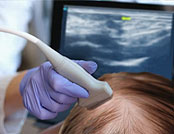 |
3) CLINICAL IMAGING OF MENOPAUSE-RELATED HAIR LOSS
MENOPAUSE adds a layer of complexity as she breaks down triggers from hormonal imbalance, physiological stressors and the link to one's personal health. The SCALPSCAN protocol applies advanced ultrasound interpretation to detect (and even possibly predict) the pathological line that leads to alopecia. This can lead to scarring (cicatricial)- where hair follicles are destroyed leading to temporary hair loss that can potentially regrow. SCALPSCAN is our personalized clinical diagnostic program designed to support a comprehensive detection of your personal health- detecting the possible cause for your hair loss. This is a sensible strategy to identifying the underlying reason (and there are many) for hair to fall out or disappear. This includes TESTING, MONITORING AND DIAGNOSTIC STRATEGIES that offer an ideal launch pad to a platform of true wellness and disease prevention. Such a comprehensive checkup that is "FUNCTIONAL" is comprised of a performance-based biological analysis offering a thorough, evidence-based health report starting with the essential roots of any disorder. This means conducting a full multi-modality workup of the patient’s genomic and gene expression report. This comprehensive study of the patient’s symptomatology is also supported by the use of the latest quantitative imaging to form a balanced report about the body's physiology. Together, this multi-modal testing approach supports a fully custom and PERSONALIZED health package.
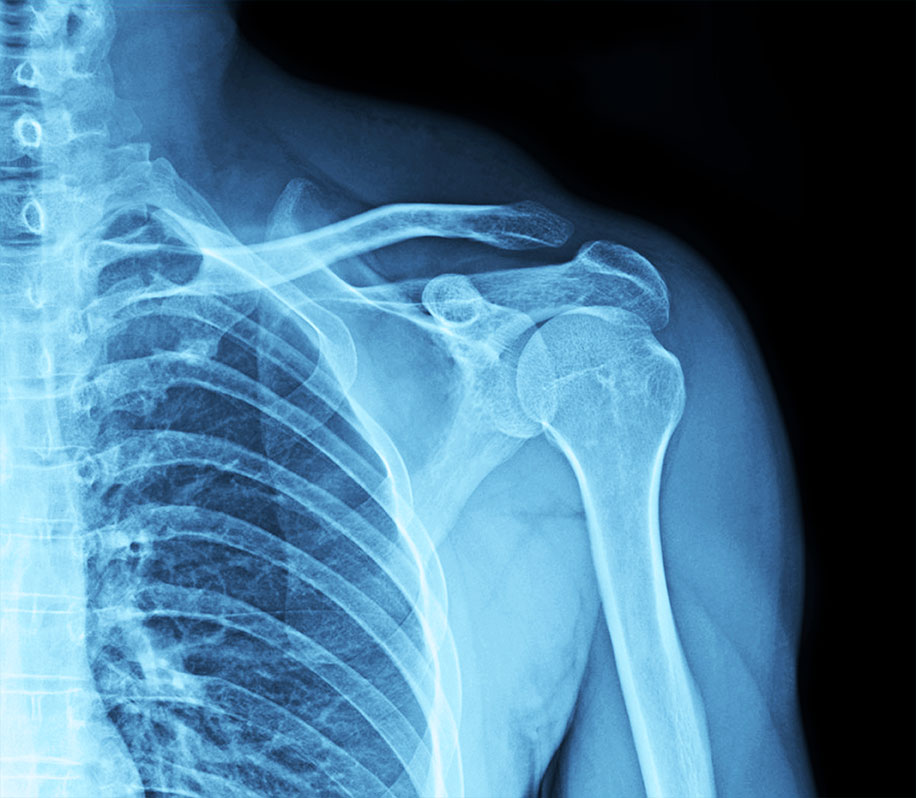 |
4) OSTEOPOROSIS AND BONE HEALTH
Estrogen is crucial for bone density maintenance. Its decline accelerates bone loss, increasing the risk of osteoporosis and fractures, particularly in the hips, spine, and wrists.
Recommended Checkups:
• Bone Density Scan (DEXA Scan): Measures bone mineral density and assesses fracture risk.
• Vitamin D and Calcium Levels: Ensures adequate levels for bone strength.
• Parathyroid Hormone (PTH) and Thyroid Function Tests: These help assess calcium metabolism and overall bone health.
PROACTIVE SCREENING
Proactive health screening is designed to detect potential health problems earlier, so you have more options and potentially better outcomes. That said, here are a few additions commonly recommend for women as they enter menopause. All of these can be done through your regular ObGyn or PCP, but it’s important to understand that they are looking for disease, not imbalances that can lead to disease.
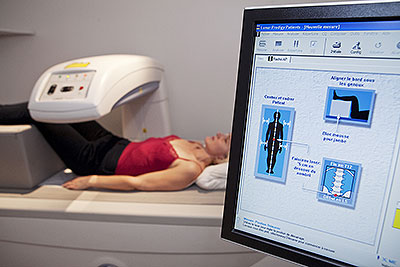 |
• Bone Density Test: Request a bone density scan if you have not had one by menopause or age 50.
• Blood Work: Get comprehensive blood work that goes beyond the basic CBC and chemistry panel, including vitamin D, omega 3 and 6 fatty acids, ferritin; hsCRP, homocysteine, fractionated lipid panel, uric acid; TSH, Free T4, Free T3, Reverse T3; HbA1c.
• Pelvic Exam: Even though routine pelvic exams are no longer recommended for asymptomatic women, changes related to menopause such as atrophy and lichen sclerosus, both of which can contribute to painful sex, as well as skin cancer can be detected early.
|
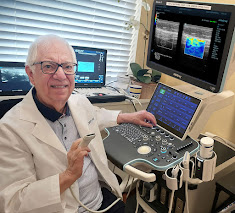 |
THE SUCCESS OF TODAY'S IMAGING DEPENDS ON THE RADIOLOGIST BEHIND THE TECHNOLOGY
A sonogram was once known as 'the baby camera', allowing the physician to safely (radiation-free) access a real-time view of a fetus. Since the 70's, the industry collectively invested in significant R&D to elevate the power of ultrasound imaging for an endless array of diagnostic and analytical needs. Its major advantage of a hand-held, portable transducer tracking a subdermal disorder in real-time is a priceless benefit to any physician in search of fast, reliable answers. And since the inception of the industry, Dr. Robert Bard was there to spearhead ultrasound advancement to its highest extent of diagnostic effect; from quantitative diagnostics of cancer tumors to the detection of chronic & autoimmune disorders, musculoskeletal issues and inflammatory diseases. - efficiently covering a wide variety of organs and pathologies. Dr. Bard’s images are used to accurately guide biopsies, target therapy and provide focused follow-up after treatment. Offering these benefits alongside measurable (quantitative) scanning powers closes the circle between "what could be wrong" and "what is DEFINITIELY there". |
|
5. COGNITIVE DECLINE AND BRAIN HEALTH
Studies suggest that estrogen has neuroprotective properties, and its decline may contribute to an increased risk of cognitive decline and conditions like Alzheimer’s disease. While brain fog is often attributed to hormonal changes, research suggests that cognitive function can be improved through targeted brain health strategies, including brain training and adjustment of specific lifestyle interventions. Brain health coaching—a structured approach that incorporates cognitive exercises, personalized lifestyle modifications, and evidence-based compensatory strategies—offers a promising solution for women seeking to regain mental clarity and enhance long-term peak brain performance. (Seymour info on Meno- Brain Retraining)
Recommended Checkups:
Cognitive Screening (e.g., MoCA or MMSE): Helps detect early signs of cognitive impairment.
Vitamin B12 and Folate Levels: Essential for brain function and mental clarity.
Neurological Assessment: For those experiencing memory loss or cognitive difficulties. |
|
6. METABOLIC SYNDROME AND WEIGHT GAIN
Menopausal women often experience weight gain due to hormonal changes and a slower metabolism. This increases the risk of metabolic syndrome, a cluster of conditions that heightens the risk for heart disease, stroke, and diabetes.
Recommended Checkups:
Body Mass Index (BMI) and Waist Circumference Measurement: Evaluates obesity-related risk factors.
Fasting Blood Sugar and Insulin Levels: Screens for insulin resistance and diabetes.
Liver Function Tests: Helps detect fatty liver disease, often linked with metabolic syndrome.
7. Hormonal and Thyroid Function
Hormonal imbalances, including thyroid dysfunction, are common in menopausal women and can mimic menopause symptoms such as fatigue, weight gain, and mood swings.
Recommended Checkups:
Thyroid Panel (TSH, Free T3, Free T4): Screens for thyroid dysfunction.
Sex Hormone Levels (Estrogen, Progesterone, and Testosterone): Helps assess hormonal imbalances.
Conclusion
Menopause brings significant changes that can impact long-term health, but proactive checkups and lifestyle modifications can help mitigate these risks. Women should work closely with their healthcare providers to create a personalized health monitoring plan. Early detection and preventive care are key to maintaining optimal health and well-being during and after menopause. |
|
| Part 2: STANDARD & CONVENTIONAL CARE |
Menopause is a natural phase of life, but its symptoms can be challenging. Conventional medicine offers
several well‐researched solutions to help manage symptoms effectively. Whether you're experiencing hot
flashes, mood swings, or bone density loss, there are proven medical treatments available to support your
well‐being.

|
Hormone Therapy (HT), including Estrogen Therapy (ET) and Estrogen‐Progestin Therapy (EPT), is one of the most
effective treatments for menopause symptoms. By supplementing declining hormone levels, HT helps
alleviate hot flashes, night sweats, vaginal dryness, and even prevents osteoporosis. However, it’s essential
to discuss potential risks and benefits with your healthcare provider, as HT may not be suitable for everyone,
particularly those with a history of certain cancers or cardiovascular conditions.
Non‐Hormonal Prescription Medications
For those who cannot or choose not to take hormone therapy, several non‐hormonal options are available:
• SSRIs & SNRIs – Selective serotonin reuptake inhibitors (SSRIs) and serotonin‐norepinephrine reuptake
inhibitors (SNRIs), such as paroxetine and venlafaxine, can help reduce hot flashes and improve mood
stability.
• Gabapentin – Originally designed for seizures, this medication has been found to relieve hot flashes,
especially for those who experience them at night.
• Clonidine – A blood pressure medication that may help some women with hot flash management.
• Ospemifene – A selective estrogen receptor modulator (SERM) that can improve vaginal dryness and
discomfort during intercourse. |
Vaginal Estrogen Therapy
For those experiencing vaginal dryness, irritation, or painful intercourse, localized estrogen treatments such
as creams, rings, and tablets offer targeted relief with minimal systemic absorption. These options help
restore vaginal tissue health and comfort.
Osteoporosis Prevention and Bone Health
Menopause‐related hormonal shifts can lead to bone density loss, increasing the risk of fractures.
Prescription medications such as bisphosphonates (e.g., alendronate, risedronate) and denosumab help
maintain bone strength and prevent osteoporosis‐related fractures.
Personalized Medical Guidance
Navigating menopause treatments can be overwhelming. A healthcare provider can help assess your
symptoms, health history, and personal preferences to develop a tailored plan that balances benefits and
potential risks. While conventional treatments provide effective symptom relief, many women choose to integrate
alternative therapies and lifestyle changes for a more holistic approach to menopause management. Explore
our additional resources to find the best combination for your journey.
|
|
The Role of Diet in Menopause
Nutrition plays a crucial role in managing menopause symptoms. A balanced diet rich in whole foods, healthy
fats, and plant‐based proteins can help stabilize hormones and improve energy levels. Incorporating foods
high in phytoestrogens—such as flaxseeds, soy, and legumes—may alleviate symptoms, while reducing
processed sugars and caffeine can help prevent energy crashes and mood swings. MENONEXT offers meal
planning guides and expert advice to help you make informed dietary choices. (See our complete section about LIFESTYLE CHANGES)
|
|

 The Women's Professional Health Network
The Women's Professional Health Network
